
Lalomanu Beach: Samoa's Tropical Paradise
Lalomanu Beach, located on the southeastern coast of Upolu Island in Samoa, is a stunning tropical getaway. Its pristine white sands stretch out against the backdrop of crystal-clear turquoise waters, making it a perfect spot for relaxation and recreation. The beach is framed by lush volcanic cliffs and palm trees, offering breathtaking views and a serene environment for visitors. The waters of Lalomanu Beach are ideal for swimming, snorkeling, and kayaking. The coral reefs just offshore are teeming with colorful marine life, providing a spectacular underwater experience for snorkelers. For those who prefer to stay on land, the beach offers plenty of space for sunbathing and picnicking. Local accommodations range from charming beachside fales (traditional Samoan huts) to more modern hotels, ensuring a comfortable stay for all types of travelers. The nearby village of Lalomanu is known for its warm hospitality and offers opportunities to experience Samoan culture and cuisine. Visitors can enjoy fresh seafood and traditional dishes while taking in the stunning sunset views. Lalomanu Beach is also an excellent base for exploring other attractions on Upolu Island. The nearby To Sua Ocean Trench, a unique swimming hole surrounded by lush gardens, is a must-visit. For adventure seekers, hiking trails through rainforests and to waterfalls provide an exciting way to discover the island's natural beauty.
Local tips in Lalomanu Beach
- Visit during the dry season (May to October) for the best weather conditions.
- Bring reef-safe sunscreen to protect the marine life while snorkeling.
- Stay in a beachside fale for a unique and authentic Samoan experience.
- Explore the local village to experience Samoan culture and try traditional dishes.
- Don't miss the To Sua Ocean Trench, located a short drive from Lalomanu Beach.
- Pack insect repellent to protect against mosquitoes, especially in the evening.
Lalomanu Beach: Samoa's Tropical Paradise
Lalomanu Beach, located on the southeastern coast of Upolu Island in Samoa, is a stunning tropical getaway. Its pristine white sands stretch out against the backdrop of crystal-clear turquoise waters, making it a perfect spot for relaxation and recreation. The beach is framed by lush volcanic cliffs and palm trees, offering breathtaking views and a serene environment for visitors. The waters of Lalomanu Beach are ideal for swimming, snorkeling, and kayaking. The coral reefs just offshore are teeming with colorful marine life, providing a spectacular underwater experience for snorkelers. For those who prefer to stay on land, the beach offers plenty of space for sunbathing and picnicking. Local accommodations range from charming beachside fales (traditional Samoan huts) to more modern hotels, ensuring a comfortable stay for all types of travelers. The nearby village of Lalomanu is known for its warm hospitality and offers opportunities to experience Samoan culture and cuisine. Visitors can enjoy fresh seafood and traditional dishes while taking in the stunning sunset views. Lalomanu Beach is also an excellent base for exploring other attractions on Upolu Island. The nearby To Sua Ocean Trench, a unique swimming hole surrounded by lush gardens, is a must-visit. For adventure seekers, hiking trails through rainforests and to waterfalls provide an exciting way to discover the island's natural beauty.
When is the best time to go to Lalomanu Beach?
Iconic landmarks you can’t miss
To-Sua Ocean Trench
Experience the breathtaking beauty of To-Sua Ocean Trench, a tranquil paradise in Samoa with crystal-clear waters and stunning natural surroundings.
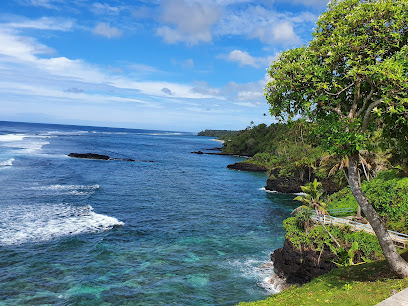
Piula Cave Pool
Experience the tranquility of Piula Cave Pool, a stunning natural oasis in Faleapuna, Samoa, perfect for swimming and relaxation amidst breathtaking landscapes.
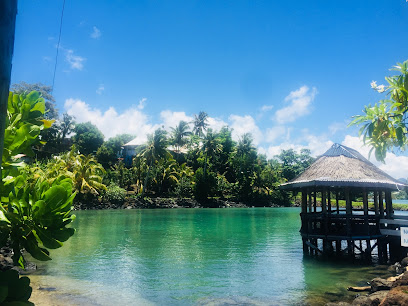
Taufua Beach Fales
Experience the tranquil beauty of Taufua Beach Fales, where traditional Samoan hospitality meets stunning ocean views in Lalomanu, Samoa.
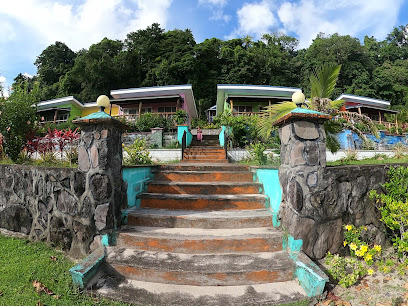
Samoa Cultural Village
Explore the vibrant traditions of Samoa at the Cultural Village, a must-visit destination for an authentic cultural experience.
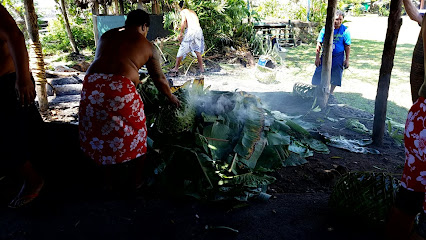
Palolo Deep Marine Reserve
Discover the vibrant underwater world of Palolo Deep Marine Reserve, a premier snorkeling and diving destination in Samoa, teeming with marine life and stunning coral reefs.
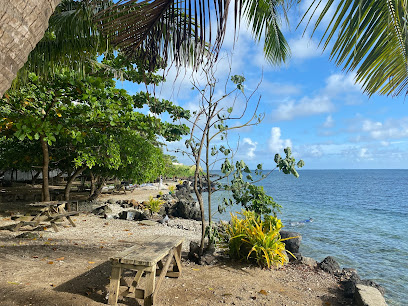
Giant Clam Sanctuary
Explore the breathtaking Giant Clam Sanctuary in Savaia, a nature preserve dedicated to the conservation of giant clams and marine life.
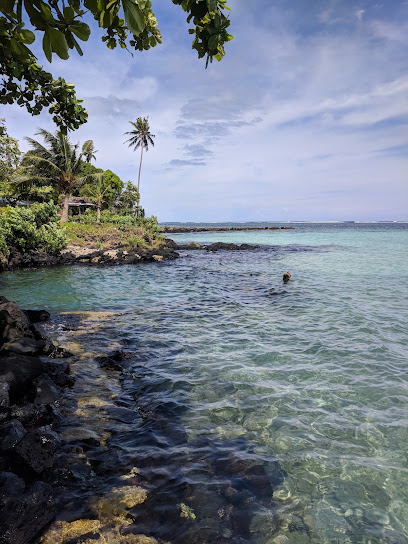
Robert Louis Stevenson Museum
Experience the enchanting blend of literature and Samoan culture at the Robert Louis Stevenson Museum in Apia, a hidden gem for every traveler.
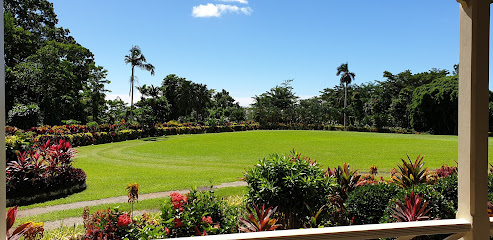
To Sua Ocean Trench
Explore To Sua Ocean Trench, a stunning natural wonder in Samoa featuring turquoise waters, lush landscapes, and unforgettable swimming experiences.
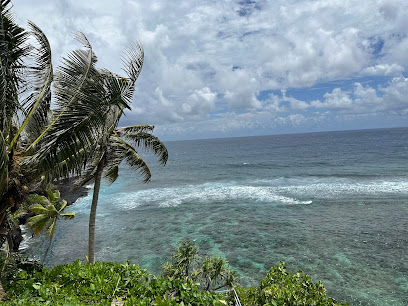
Papaseea Sliding Rocks
Discover the exhilarating Papaseea Sliding Rocks, a tropical paradise in Samoa offering fun and adventure for all ages in a stunning natural setting.
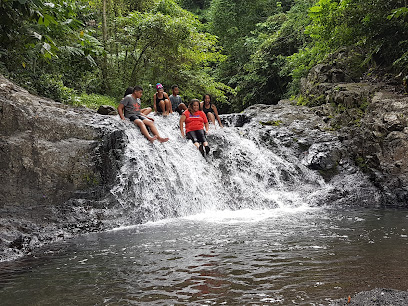
Afu Aau Waterfalls
Experience the serene beauty of Afu Aau Waterfalls in Vailoa, where nature's tranquility and stunning cascades await your visit.
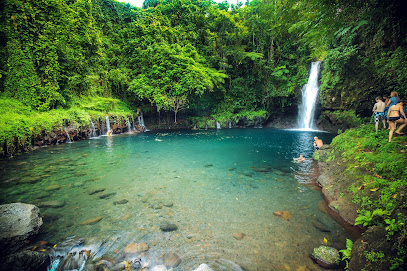
Faofao Beach Fales
Discover the beauty of Samoa at Faofao Beach Fales, where comfort meets stunning ocean views and authentic island hospitality.

Immaculate Conception Cathedral
Discover the beauty and spirituality of the Immaculate Conception Cathedral in Apia, a stunning blend of Samoan heritage and architectural elegance.
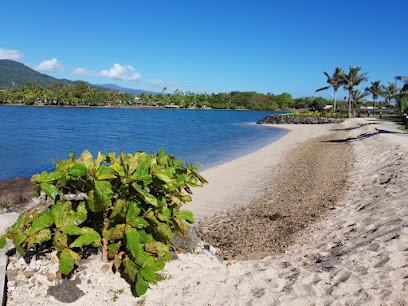
Aga Reef Resort
Experience luxury and natural beauty at Aga Reef Resort, your perfect getaway in Lalomanu, Samoa, offering adventure, relaxation, and cultural immersion.
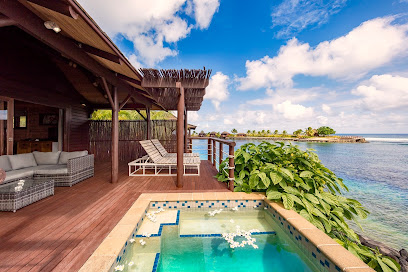
Manusina Beach Fales
Experience authentic Samoan hospitality at Manusina Beach Fales, a serene retreat on the beautiful shores of Lepa, offering traditional accommodations and stunning beaches.
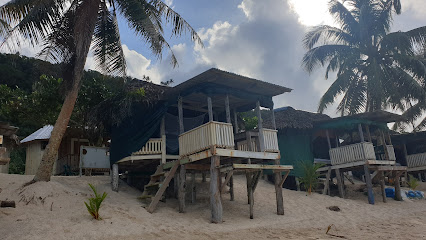
Papapapaitai Falls
Explore the stunning Papapapaitai Falls in Samoa, a breathtaking waterfall surrounded by lush tropical landscapes, perfect for unforgettable adventures.
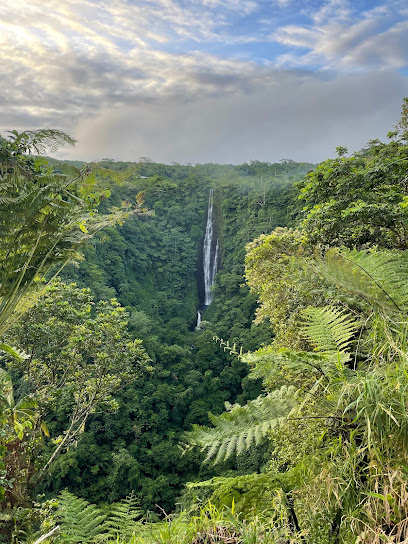
Unmissable attractions to see
Palolo Deep Marine Reserve
Explore the vibrant underwater beauty of Palolo Deep Marine Reserve in Apia, Samoa, a sanctuary for marine life and a top destination for snorkeling and diving adventures.
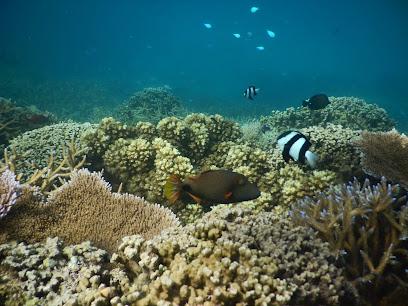
Giant Clam Sanctuary
Explore the vibrant marine life at the Giant Clam Sanctuary in Savaia, Samoa, a nature preserve dedicated to the conservation of giant clams.
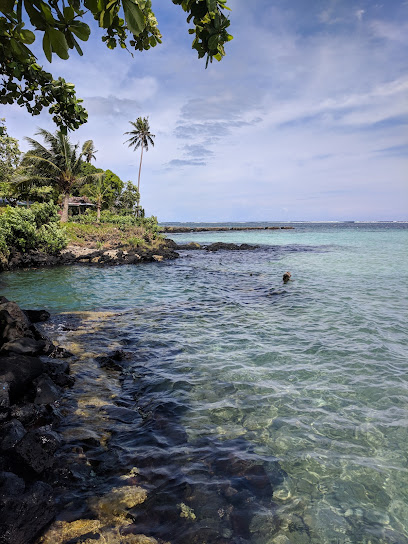
Namua
Experience the untouched beauty of Namua Island, a serene tropical paradise in Samoa, where nature and tranquility unite for an unforgettable getaway.
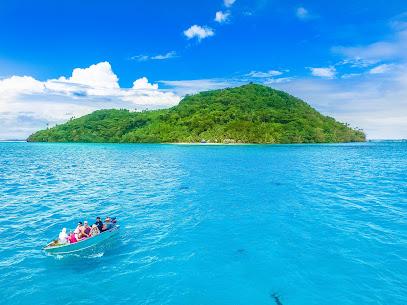
Vailima Botanical Garden
Experience the serene beauty and rich history of Vailima Botanical Garden, a lush paradise inspired by Robert Louis Stevenson in Apia, Samoa.
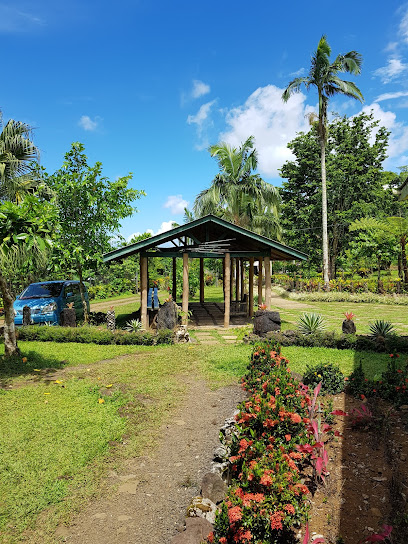
Lake Lanoto'o
Experience the tranquility and natural beauty of Lake Lanoto'o, a must-visit hiking area in Samoa for nature lovers and adventure seekers.

Asaga River Pool and Beach Fale
Experience the serene beauty of Asaga River Pool and Beach Fale, a tranquil oasis where river meets ocean in the heart of Samoa's North Coast.
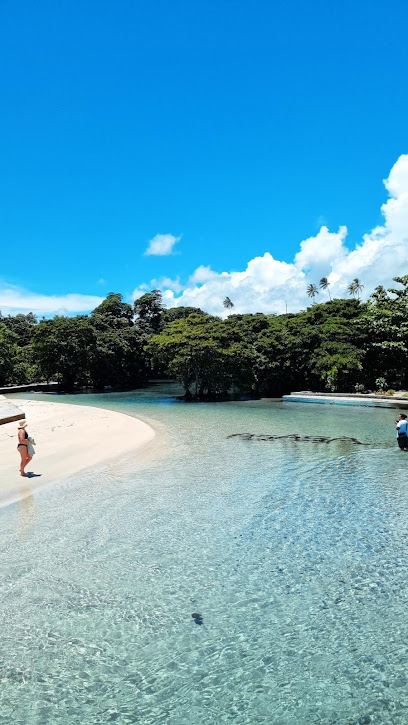
Lemafa Scenic Site
Discover stunning vistas and serene nature at Lemafa Scenic Site in Sauago, a must-visit observation deck for every traveler.
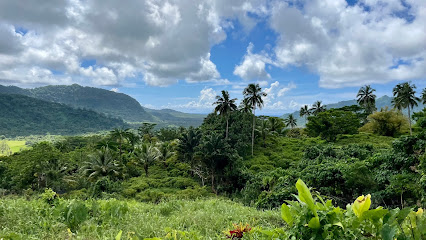
Fanua Faasao - Sinave Reserve
Explore the lush beauty and biodiversity of Fanua Faasao - Sinave Reserve in Apia, Samoa, a must-visit destination for nature lovers and eco-tourists.

Fanua Faaso Tiafau Reserve
Explore the tranquil beauty of Fanua Faaso Tiafau Reserve in Apia, Samoa, a serene park perfect for nature lovers and peaceful escapes.
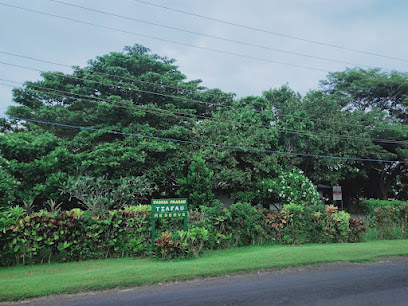
Monsignor Ioane Vito Memorial Park
Discover tranquility and culture at Monsignor Ioane Vito Memorial Park, a beautiful tribute in Lotofaga, Samoa, perfect for reflection and relaxation.
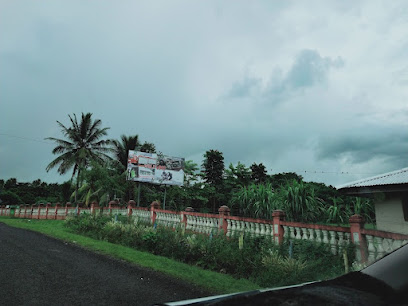
Dr. Art Whistler Memorial Garden
Discover the tranquility of Dr. Art Whistler Memorial Garden in Apia, a serene botanical haven celebrating Samoa's rich biodiversity and the legacy of a renowned botanist.
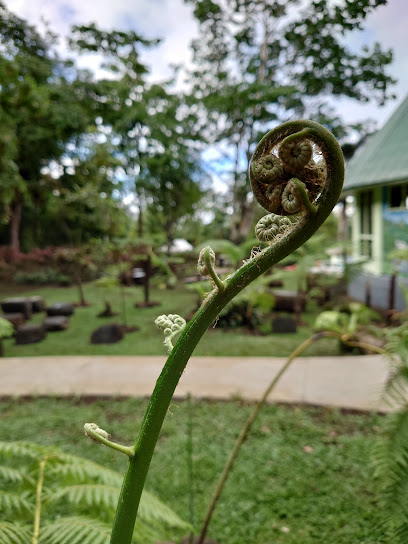
Hero's welcome for La'auli Lupesoliai Joseph Parker
Experience the vibrant spirit of Samoa at the Hero's Welcome for La'auli Lupesoliai Joseph Parker, a captivating tribute to the boxing champion.
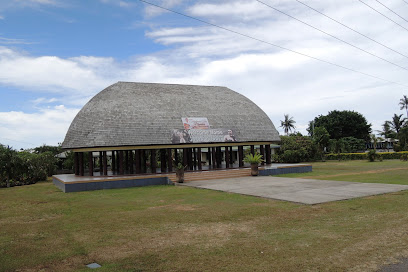
Essential places to dine
Paddles Restaurant
Experience authentic Samoan cuisine at Paddles Restaurant in Apia, where local flavors meet stunning ocean views.
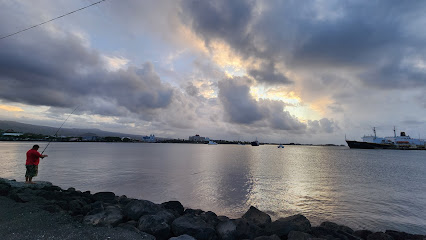
Giordano's Pizzeria // Samoa
Experience authentic Italian pizza in Samoa at Giordano's Pizzeria - where every bite transports you to Italy!
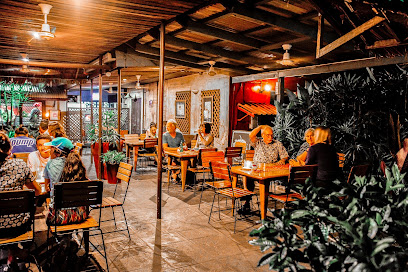
The Edge Marina, Samoa
Discover culinary delights at The Edge Marina in Samoa – your ultimate destination for relaxation and entertainment by the sea.
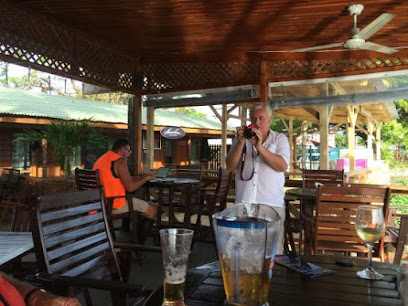
Scalini's Restaurant
Experience the vibrant flavors of Samoa at Scalini's Restaurant - where local cuisine meets international flair.
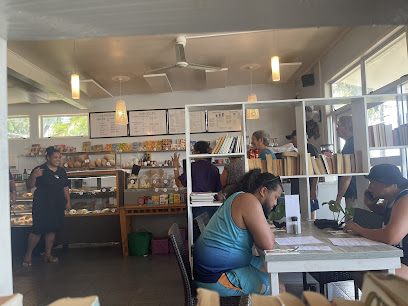
Faofao Beach Fales
Discover the beauty of Samoa at Faofao Beach Fales - your serene beach retreat for relaxation and adventure.

Tifaimoana Indian Restaurant
Experience authentic Indian cuisine at Tifaimoana Indian Restaurant in Apia, where vibrant flavors meet Samoan hospitality.
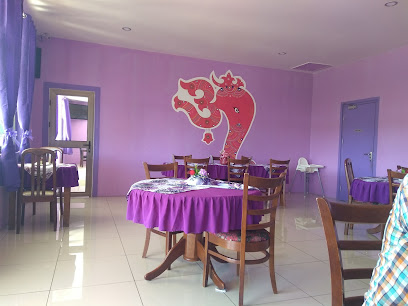
Sails Restaurant & Bar
Discover authentic Samoan flavors at Sails Restaurant & Bar in Apia, where exquisite cuisine meets breathtaking views.
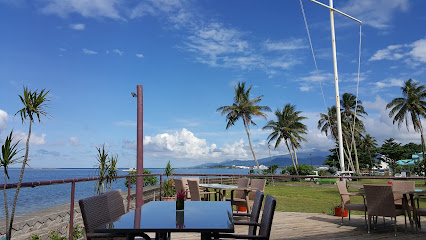
Pinati Restaurant
Experience authentic Samoan flavors at Pinati Restaurant in Apia – where fresh ingredients meet traditional culinary artistry.
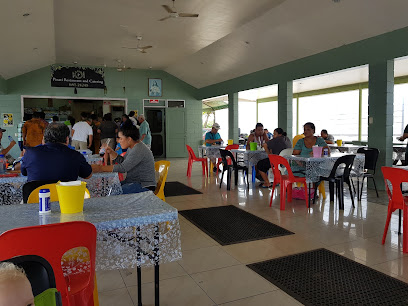
Kokobanana Bar & Grill
Discover the vibrant flavors of Samoa at Kokobanana Bar & Grill – where every meal tells a story.
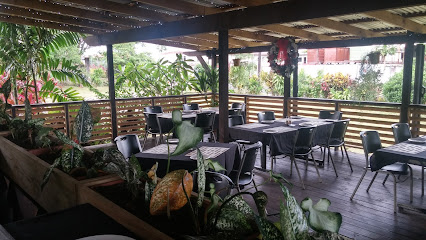
Bistro Tatau Restaurant
Discover exquisite local flavors at Bistro Tatau in Apia – where tradition meets modern culinary artistry.
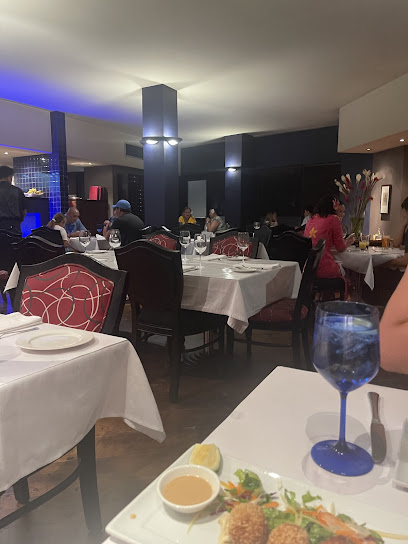
Amanaki Restaurant
Discover authentic Samoan flavors at Amanaki Restaurant in Apia, where local ingredients meet warm hospitality and stunning views.
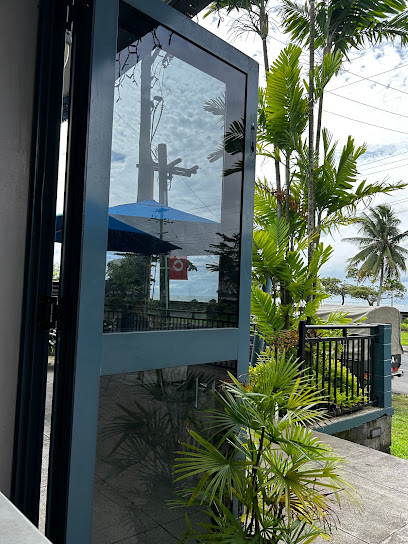
Island Grill - Steak & Seafood
Experience authentic Samoan flavors at Island Grill - Steak & Seafood; indulge in freshly caught seafood and expertly grilled steaks in Apia.
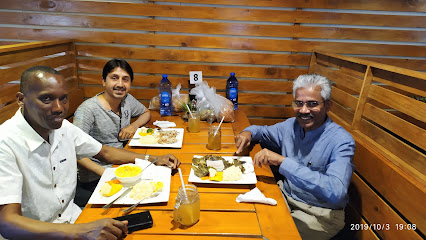
Roko's Restaurant
Experience authentic Samoan flavors at Roko's Restaurant in Apia, where culinary traditions meet a vibrant dining atmosphere.
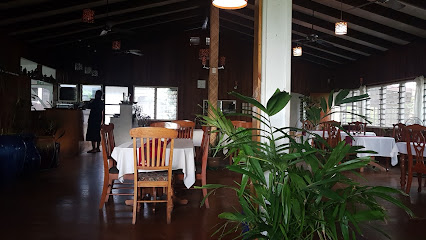
Taumeasina Restaurant & Bar
Experience authentic Samoan cuisine with breathtaking ocean views at Taumeasina Restaurant & Bar in Apia.
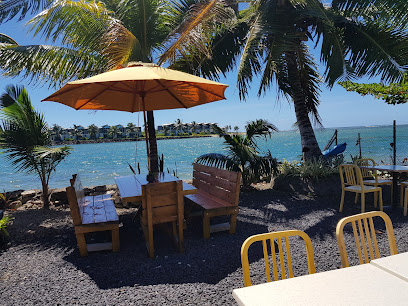
Tandoori Indian Restaurant
Experience the vibrant flavors of India at Tandoori Indian Restaurant in Apia, Samoa—where culinary traditions meet warm hospitality.
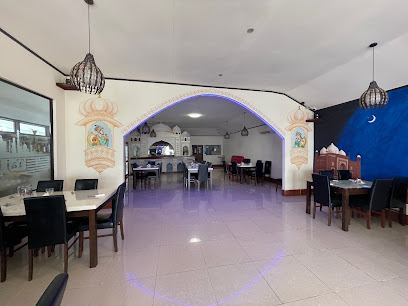
Markets, malls and hidden boutiques
Pacific Jewell Gift Shop & Garden Café
Immerse yourself in the beauty of Samoa at Pacific Jewell Gift Shop & Garden Café, where unique gifts meet delightful local cuisine in a serene garden setting.
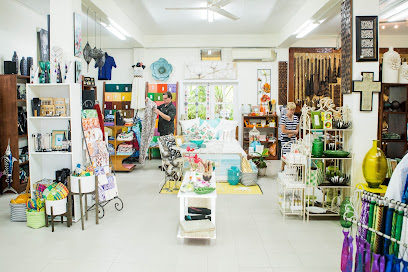
Lalomanu Beach
Discover the breathtaking beauty of Lalomanu Beach, a hidden gem in Samoa with pristine sands and vibrant marine life, perfect for relaxation and adventure.
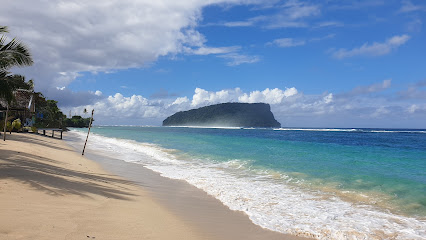
Janet's Samoa
Explore Janet's Samoa for unique gifts that celebrate the vibrant culture of Samoa, right in the heart of Apia.
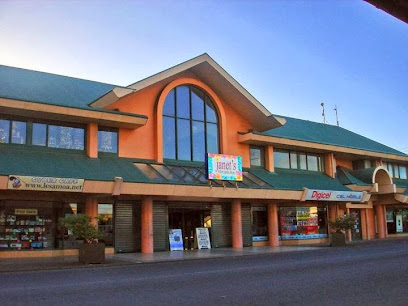
Mailelani Samoa Body Care
Discover the authentic beauty of Samoa with natural body care products at Mailelani Samoa Body Care, a must-visit gift shop in Apia.
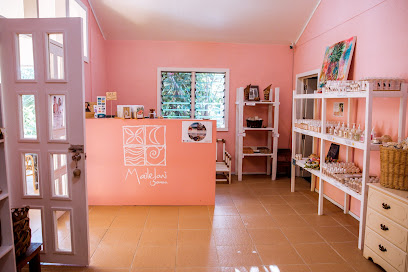
Linettacollections Samoa
Explore Linettacollections Samoa for unique home goods and authentic Samoan craftsmanship, a must-visit for every traveler in Apia.

Samusu Convenience & Bakery Store
Explore the culinary treasures of Samusu at the Convenience & Bakery Store, where local flavors and community spirit come together.
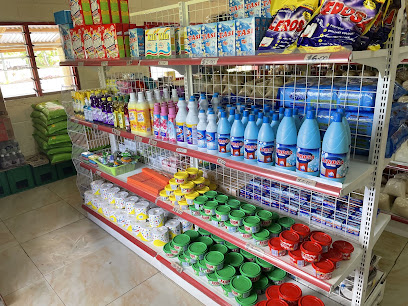
Plantation House
Discover the vibrant culture of Samoa through unique clothing at Plantation House, Apia's premier fashion destination.
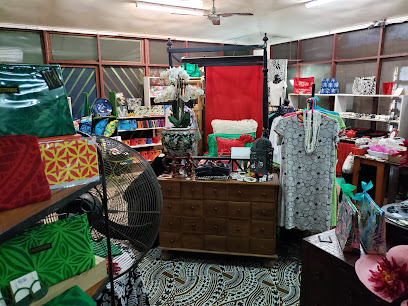
Le-Ata Samoa
Explore the vibrant world of Samoan craftsmanship at Le-Ata Samoa, where every visit unveils unique gifts and treasures.
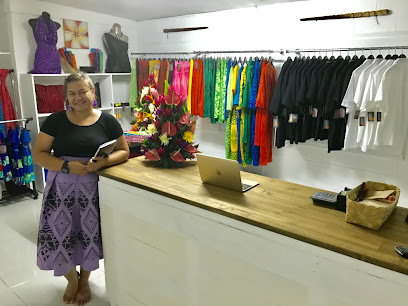
Ross Samoa
Explore the charm of second-hand shopping at Ross Samoa, where unique linens and vintage treasures await in the heart of Apia.
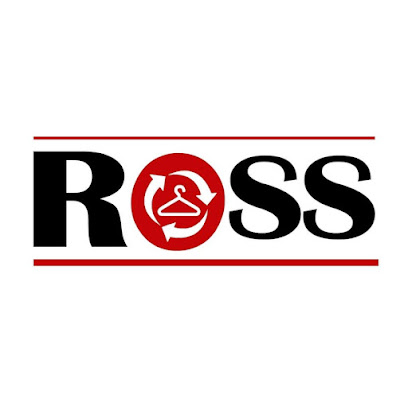
Sola's Shop (Basics)
Discover the charm of Sola's Shop in Gagaifoolevao, where local culture meets unique shopping experiences filled with essential goods and delightful souvenirs.
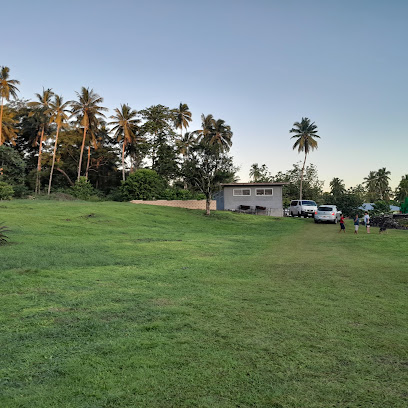
Si'upapa Store
Explore Si'upapa Store in Solosolo for authentic handmade crafts and local essentials, showcasing the vibrant spirit of Samoan culture.

Bella Minimart
Discover Bella Minimart in Salani for all your convenience needs while exploring the stunning beauty of Samoa's landscapes.
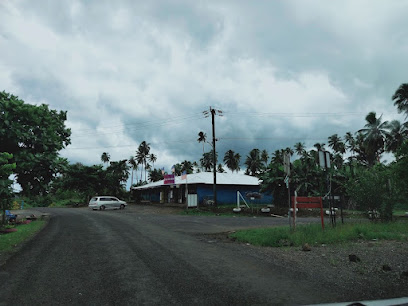
Janet's at Taumeasina Island Resort
Explore Janet's Gift Shop at Taumeasina Island Resort for unique Samoan handicrafts and cultural treasures in a tropical paradise.
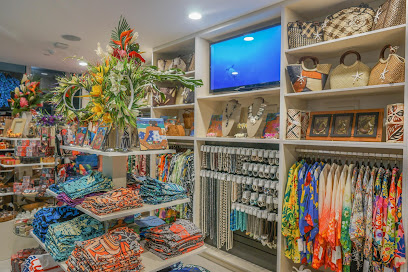
Lemoe's Mart
Explore Lemoe's Mart in Samusu for a unique shopping experience featuring fresh produce, local delicacies, and stylish furniture.
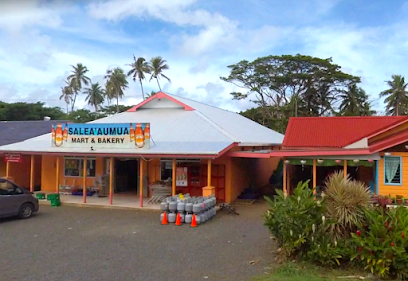
Atua Minimarket
Experience the local flavor and convenience of Atua Minimarket, a charming stop in Tiavea for all your travel essentials.
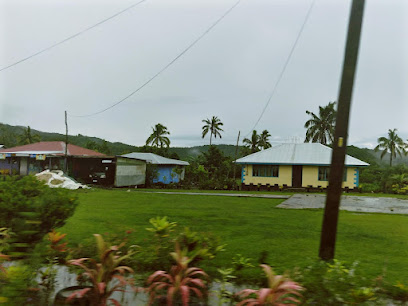
Essential bars & hidden hideouts
Taufua Beach Fales
Experience the beauty of Samoa at Taufua Beach Fales, where sun, sand, and serenity meet in a tropical paradise.
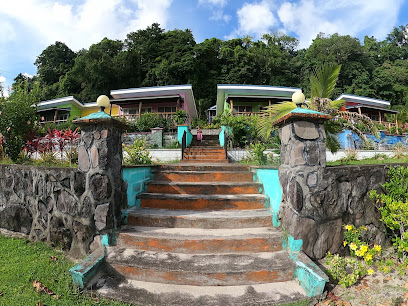
The Edge Marina, Samoa
Experience the vibrant atmosphere of The Edge Marina, Samoa, where delicious food meets breathtaking ocean views for a perfect getaway.
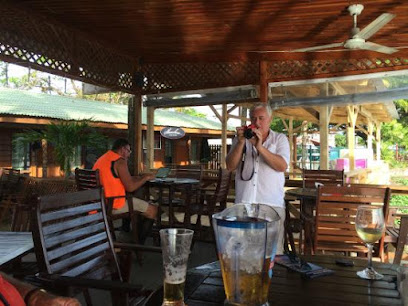
Faofao Beach Fales
Experience the tranquility of Faofao Beach Fales, where traditional Samoan hospitality meets stunning beachside beauty.

Taumeasina Restaurant & Bar
Experience the taste of Samoa at Taumeasina Restaurant & Bar, where local flavors meet ocean views for an unforgettable dining adventure.
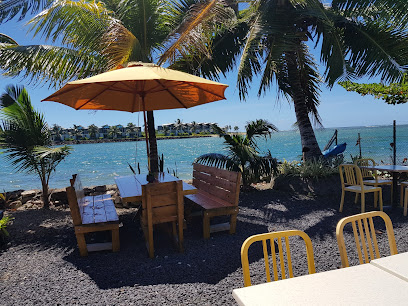
LuluLosa Beach Fales Bar & Grill
Experience the best of Samoan cuisine at LuluLosa Beach Fales Bar & Grill, where delicious food meets stunning ocean views in Lalomanu.
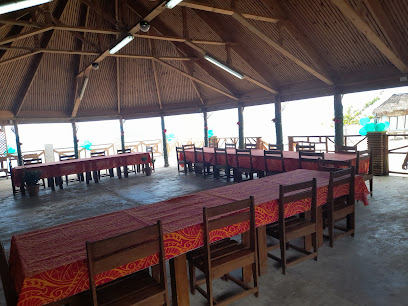
Cocktails On the Rocks
Experience the vibrant tropical atmosphere of Cocktails On the Rocks, a premier bar in Apia offering unique cocktails and stunning beach views.
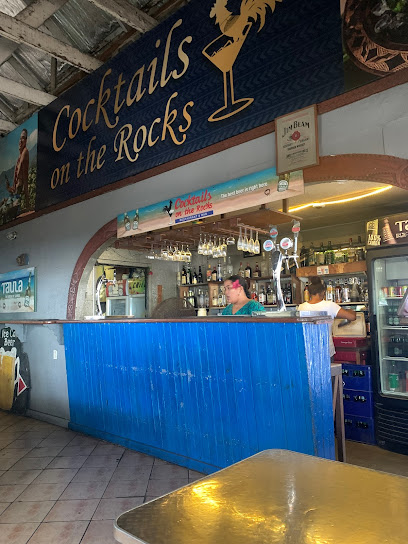
Anita's Beach Bar/Restaurant
Discover the serene charm of Anita's Beach Bar/Restaurant in Lalomanu, where delicious cuisine meets stunning ocean views.
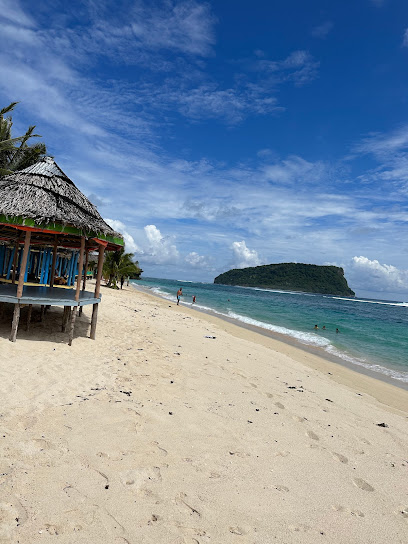
JP Bar
Enjoy the vibrant nightlife at JP Bar in Apia, where excellent drinks and lively music create unforgettable evenings.
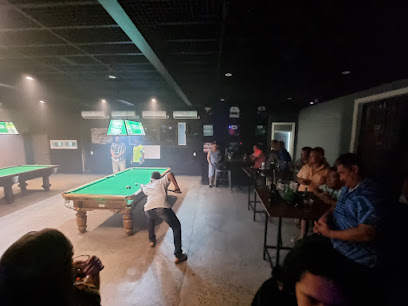
Y-Not Lounge Bar Samoa
Discover the vibrant nightlife and local flavors at Y-Not Lounge Bar in Apia, Samoa – the perfect spot for relaxation and fun.

Turtle Lounge Saleimoa, Samoa
Experience the vibrant culinary scene at Turtle Lounge in Saleimoa, Samoa, where local flavors meet stunning views in a laid-back atmosphere.
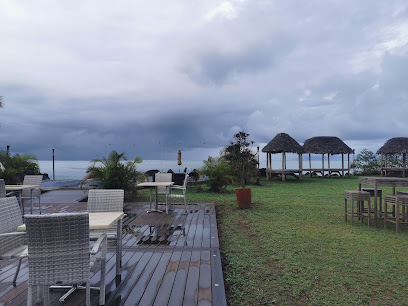
Beachcomber Bar And Restaurant
Experience the vibrant flavors and stunning views at Beachcomber Bar and Restaurant in Apia, Samoa, a true tropical dining gem.
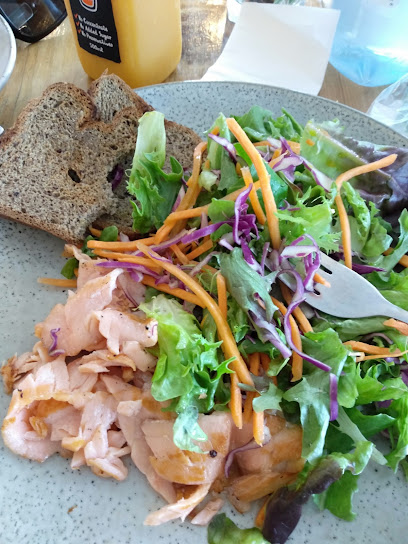
Kevin sisson
Experience the vibrant atmosphere and local flavors at Kevin Sisson Bar in Salua, where every drink tells a story.

Solent Bar
Experience the vibrant spirit of Samoa at Solent Bar, where exquisite cocktails and local flavors meet breathtaking views.

Tuxx Bar Samoa
Experience the vibrant nightlife of Apia at Tuxx Bar Samoa, where local flavors and a lively atmosphere await every visitor.

Local Phrases about Lalomanu Beach
-
- HelloTalofa
[Tah-loh-fah] - GoodbyeFa
[Fah] - YesIoe
[Ee-oh-eh] - NoLeai
[Leh-eye] - Please/You're welcomeFa'amalie
[Fah-ah-mah-lee-eh] - Thank youFa'afetai
[Fah-ah-feh-tie] - Excuse me/SorryFa'amalie
[Fah-ah-mah-lee-eh] - How are you?O a mai oe?
[Oh-ah-mye-oh-eh] - Fine. And you?Lelei. O a oe?
[Leh-leh-ee. Oh-ah-eh] - Do you speak English?O lea e te le fa'ailoaga i le gagana Inglisi?
[Oh-leh-ah-eh-teh-leh-fah-ai-loh-ah-gah-ee-leh-gah-gah-nah-Ing-lee-see] - I don't understandE le mafai ona ou te manatu
[Eh-leh-mah-fai-oh-nah-oh-teh-mah-nah-too]
- HelloTalofa
-
- I'd like to see the menu, pleaseFa'amalie, ou te fia va'ai le su'ega
[Fah-ah-mah-lee-eh-oh-teh-fee-ah-vah-eye-leh-soo-eh-gah] - I don't eat meatE le a'oga i le kuka
[Eh-leh-ah-aw-gah-ee-leh-koo-kah] - Cheers!Manuia!
[Mah-noo-ee-ah] - I would like to pay, pleaseFa'amalie, ou te fia totogi
[Fah-ah-mah-lee-eh-oh-teh-fee-ah-toh-toh-gee]
- I'd like to see the menu, pleaseFa'amalie, ou te fia va'ai le su'ega
-
- Help!Sosoo!
[So-soh] - Go away!Ava
[Ah-vah] - Call the Police!Faitio le Ofisa Fa'apolisi
[Fah-ee-tee-oh-leh-Oh-fee-sah-Fah-ah-poh-lee-see] - Call a doctor!Faitio le Tofa
[Fah-ee-tee-oh-leh-Tow-fah] - I'm lostUa ou te te leiti
[Oo-ah-oh-teh-teh-lay-ee-tee] - I'm illOu te mate
[Oh-teh-mah-teh]
- Help!Sosoo!
-
- I'd like to buy...Ou te fia fa'atau...
[Oh-teh-fee-ah-fah-ah-tah-oo] - I'm just lookingOu te talanoa fa'apea
[Oh-teh-tah-lah-noh-ah-fah-ah-pay-ah] - How much is it?E fia le tupe?
[Eh-fee-ah-leh-too-peh] - That's too expensiveO lelei le tupe
[Oh-leh-leh-ee-leh-too-peh] - Can you lower the price?Faa'alo le totogi?
[Fah-ah-ah-loh-leh-toh-toh-gee]
- I'd like to buy...Ou te fia fa'atau...
-
- What time is it?O le a le taimi
[Oh-leh-ah-leh-tah-ee-mee] - It's one o'clockO le tasi
[Oh-leh-tah-see] - Half past (10)I le fulu
[Ee-leh-foo-loo] - MorningTaeao
[Tah-eh-ah-oh] - AfternoonAfiafi
[Ah-fee-ah-fee] - EveningIlioli
[Ee-lee-oh-lee] - YesterdayAnanafi
[Ah-nah-nah-fee] - TodayLenei
[Leh-neh-ee] - TomorrowAso ma le po
[Ah-soh-mah-leh-poh] - 1Tasi
[Tah-see] - 2Lua
[Loo-ah] - 3Tolu
[Toh-loo] - 4Fa
[Fah] - 5Lima
[Lee-mah] - 6Ono
[Oh-noh] - 7Fitu
[Fee-too] - 8Valu
[Vah-loo] - 9Iva
[Ee-vah] - 10Sefulu
[Sey-foo-loo]
- What time is it?O le a le taimi
-
- Where's a/the...?O fea o le...?
[Oh-feh-ah-oh-leh] - What's the address?O le tusi tupe o fea?
[Oh-leh-too-see-too-peh-oh-feh-ah] - Can you show me (on the map)?Faa'alo mai ia te au (i le mapa)?
[Fah-ah-ah-loh-mah-ee-ah-teh-ow-ee-leh-mah-pah] - When's the next (bus)?Aso e pei (auta)?
[Ah-soh-eh-pay-ee-ow-tah] - A ticket (to ....)Tiketi (i le ....)
[Tee-keh-tee-ee-leh]
- Where's a/the...?O fea o le...?
History of Lalomanu Beach
-
Lalomanu Beach, like much of Samoa, bears the legacy of ancient Polynesian settlers who arrived around 1000 BCE. These early navigators traveled vast distances across the Pacific Ocean, establishing their communities along the coastlines, including Lalomanu. The beach and surrounding areas served as vital locations for fishing, gathering, and social activities. Archaeological evidence suggests that these settlers practiced complex social structures and had deep connections with the ocean, which played a crucial role in their daily lives.
-
In the early 19th century, European missionaries arrived in Samoa, profoundly impacting the culture and way of life. Lalomanu Beach witnessed the establishment of Christian missions, which introduced new religious practices and education systems. The blending of traditional Samoan beliefs with Christianity can still be observed in the local culture today. Churches built during this period stand as historical landmarks, reflecting the architectural styles and cultural exchange of the time.
-
Lalomanu Beach was significantly affected during the colonial era when Samoa came under German control in the late 19th century, followed by New Zealand administration after World War I. The beach and its surrounding areas saw the introduction of new governance systems, economic practices, and infrastructural developments. These changes brought about a mix of challenges and opportunities for the local communities as they navigated the complexities of colonial rule.
-
One of the most significant recent events in the history of Lalomanu Beach was the devastating tsunami that struck on September 29, 2009. Triggered by an 8.1 magnitude earthquake, the tsunami caused widespread destruction along the coastline. Lalomanu Beach was particularly hard-hit, with many lives lost and homes destroyed. The community's resilience in the aftermath is a testament to their strength and unity. Reconstruction efforts have led to the rebuilding of homes and infrastructure, and today, Lalomanu Beach has regained its status as a picturesque and serene destination.
-
Today, Lalomanu Beach is a vibrant hub of cultural celebrations that attract visitors from around the world. The beach is a focal point for traditional Samoan ceremonies, including fiafia nights, which showcase traditional dance, music, and feasting. These events offer a glimpse into the rich cultural heritage of the Samoan people and their enduring connection to the land and sea. Lalomanu Beach continues to be a place where the past and present blend seamlessly, providing a unique and immersive experience for all who visit.
Lalomanu Beach Essentials
-
Lalomanu Beach is located on the southeastern coast of Upolu Island in Samoa. The nearest airport is Faleolo International Airport, approximately 90 kilometers away. From the airport, you can take a taxi or hire a car to reach Lalomanu Beach. The journey typically takes around 1.5 to 2 hours by road, offering scenic views of the island's lush landscapes and coastal areas.
-
Lalomanu Beach and its surrounding areas are best explored by car. Rental cars are available at Faleolo International Airport and in Apia, the capital city. Taxis are also available, but they can be relatively expensive. Public buses operate between Apia and Lalomanu Beach, providing a budget-friendly option. However, the bus schedules can be irregular, so it's best to check the timetable in advance.
-
The official currency in Samoa is the Samoan Tala (WST). Credit cards are accepted in some hotels, restaurants, and shops, but it is advisable to carry cash, especially in smaller establishments and more remote areas. ATMs are available in Apia and other major towns, but it is wise to withdraw sufficient cash before heading to Lalomanu Beach.
-
Lalomanu Beach is generally a safe destination for tourists. However, it is always advisable to take standard precautions. Avoid leaving valuable items unattended on the beach and be cautious when swimming, as currents can be strong. While Samoa has a low crime rate, it is best to stay vigilant and aware of your surroundings. There are no specific high-crime areas targeting tourists in Lalomanu.
-
In case of emergency, dial 911 for immediate assistance. The nearest medical facilities are located in Apia, which is about a 1.5 to 2-hour drive from Lalomanu Beach. It is recommended to have travel insurance that covers medical emergencies. For minor health issues, there are pharmacies in Apia where you can purchase over-the-counter medications.
-
Fashion: Do wear modest swimwear on the beach and cover up when not swimming. Avoid wearing revealing clothing in public places. Religion: Do respect local customs and traditions. Remove your shoes and cover your shoulders when entering churches. Public Transport: Do be respectful and greet the driver when boarding the bus. Don't eat or drink on public transport. Greetings: Do greet people with a smile and a friendly 'Talofa' (hello). Eating & Drinking: Do try local delicacies and accept food offerings graciously. Don't refuse hospitality, as it is considered impolite.
-
To experience Lalomanu Beach like a local, visit the nearby village of Lalomanu and engage with the friendly residents. Participate in a traditional Samoan 'umu' (earth oven) cooking demonstration and feast on delicious local dishes. Don't miss the opportunity to attend a fiafia night, where you can enjoy traditional Samoan music and dance performances. For a unique experience, take a boat trip to the nearby Nu'utele Island, known for its stunning marine life and snorkeling spots.
Trending Landmarks in Lalomanu Beach
-
To-Sua Ocean Trench
-
Piula Cave Pool
-
Taufua Beach Fales
-
Samoa Cultural Village
-
Palolo Deep Marine Reserve
-
Giant Clam Sanctuary
-
Robert Louis Stevenson Museum
-
To Sua Ocean Trench
-
Papaseea Sliding Rocks
-
Afu Aau Waterfalls
-
Faofao Beach Fales
-
Immaculate Conception Cathedral
-
Aga Reef Resort
-
Manusina Beach Fales
-
Papapapaitai Falls
Nearby Cities to Lalomanu Beach
-
Things To Do in Apia
-
Things To Do in Mulifanua
-
Things To Do in Leone
-
Things To Do in Tafuna
-
Things To Do in Pago Pago
-
Things To Do in Fagatogo
-
Things To Do in Aua
-
Things To Do in Salelologa
-
Things To Do in Savai'i
-
Things To Do in Fagamalo
-
Things To Do in Manase
-
Things To Do in Asau
-
Things To Do in Falealupo
-
Things To Do in Ha'ano
-
Things To Do in Pangai








